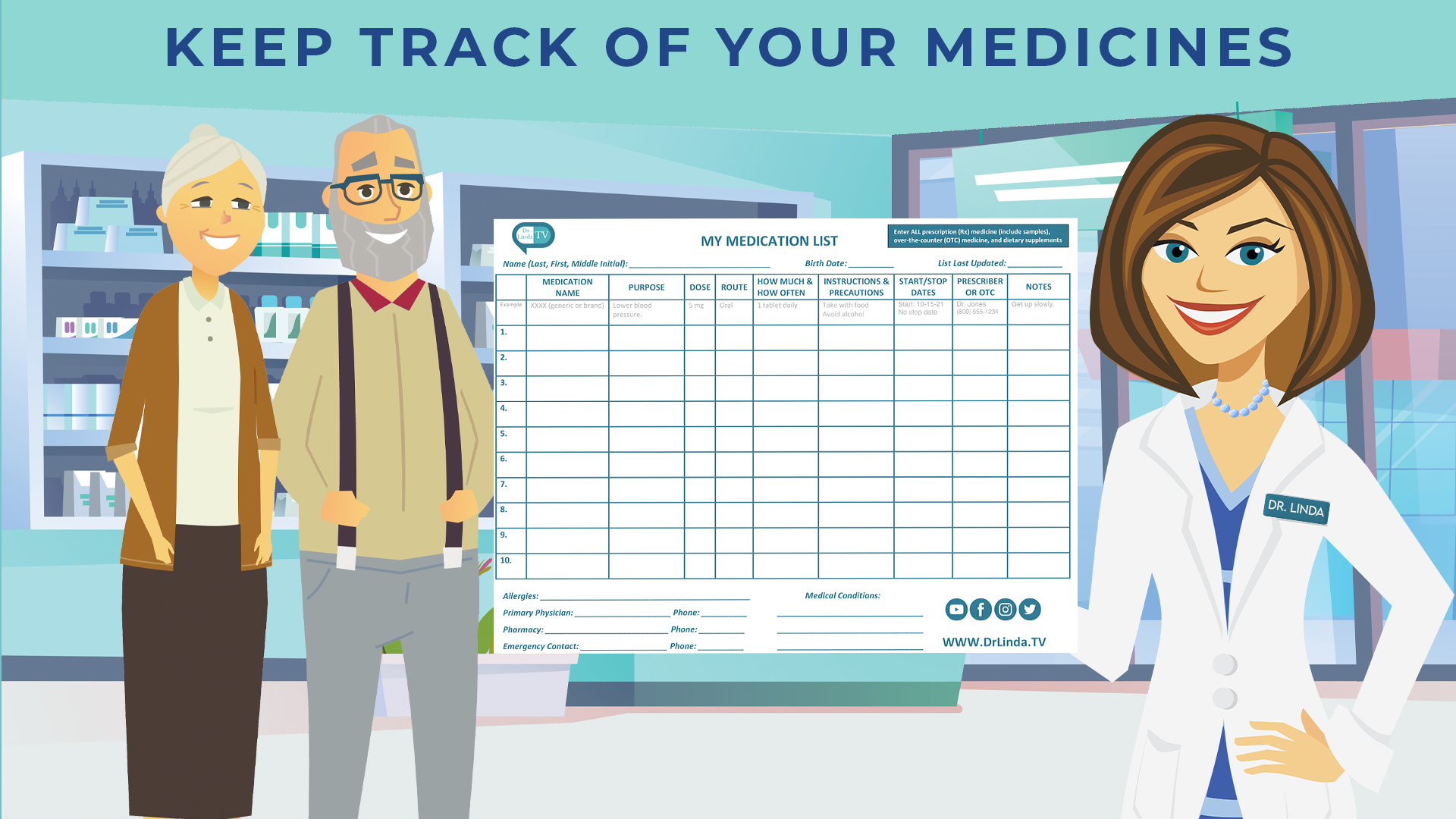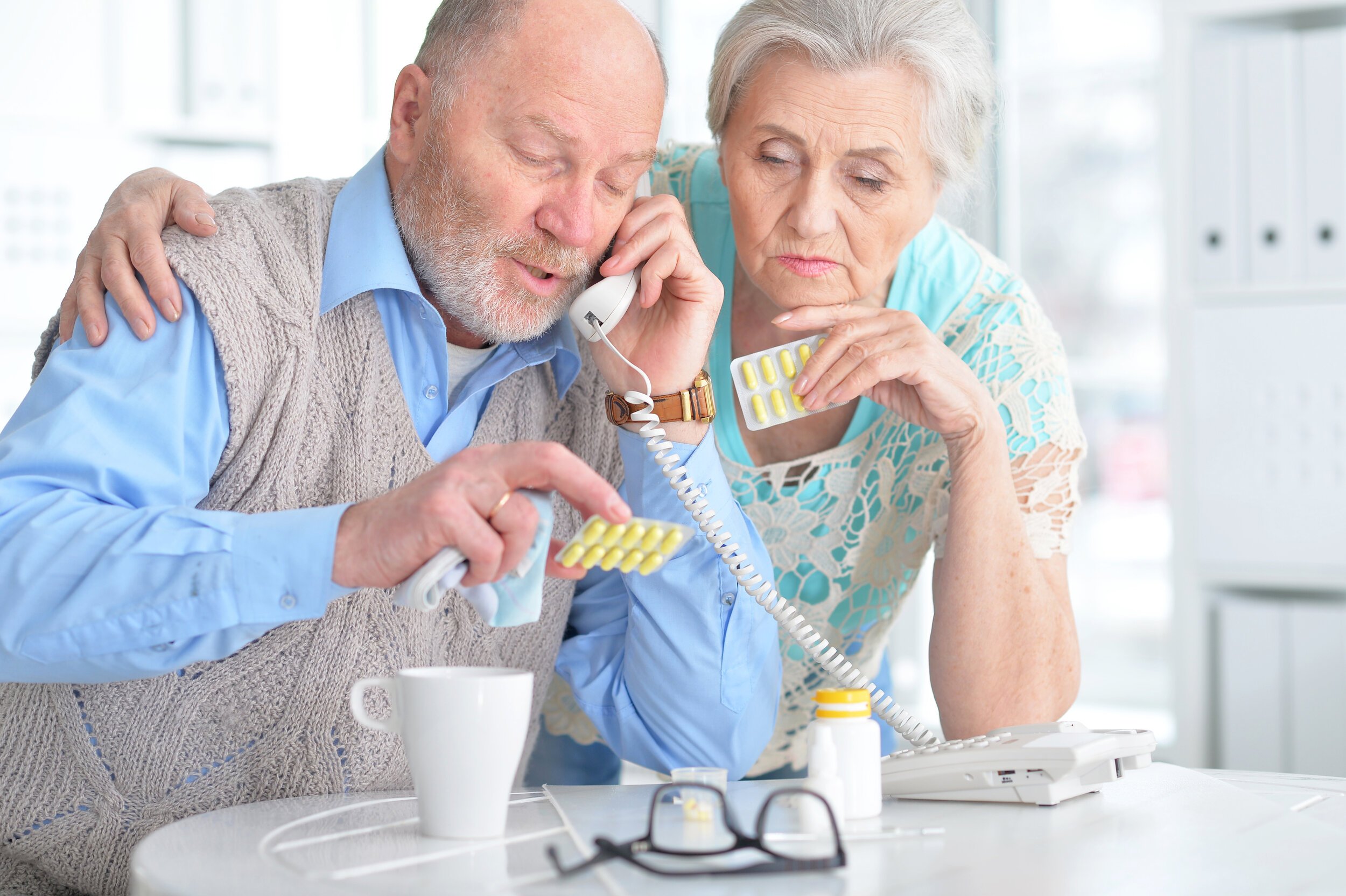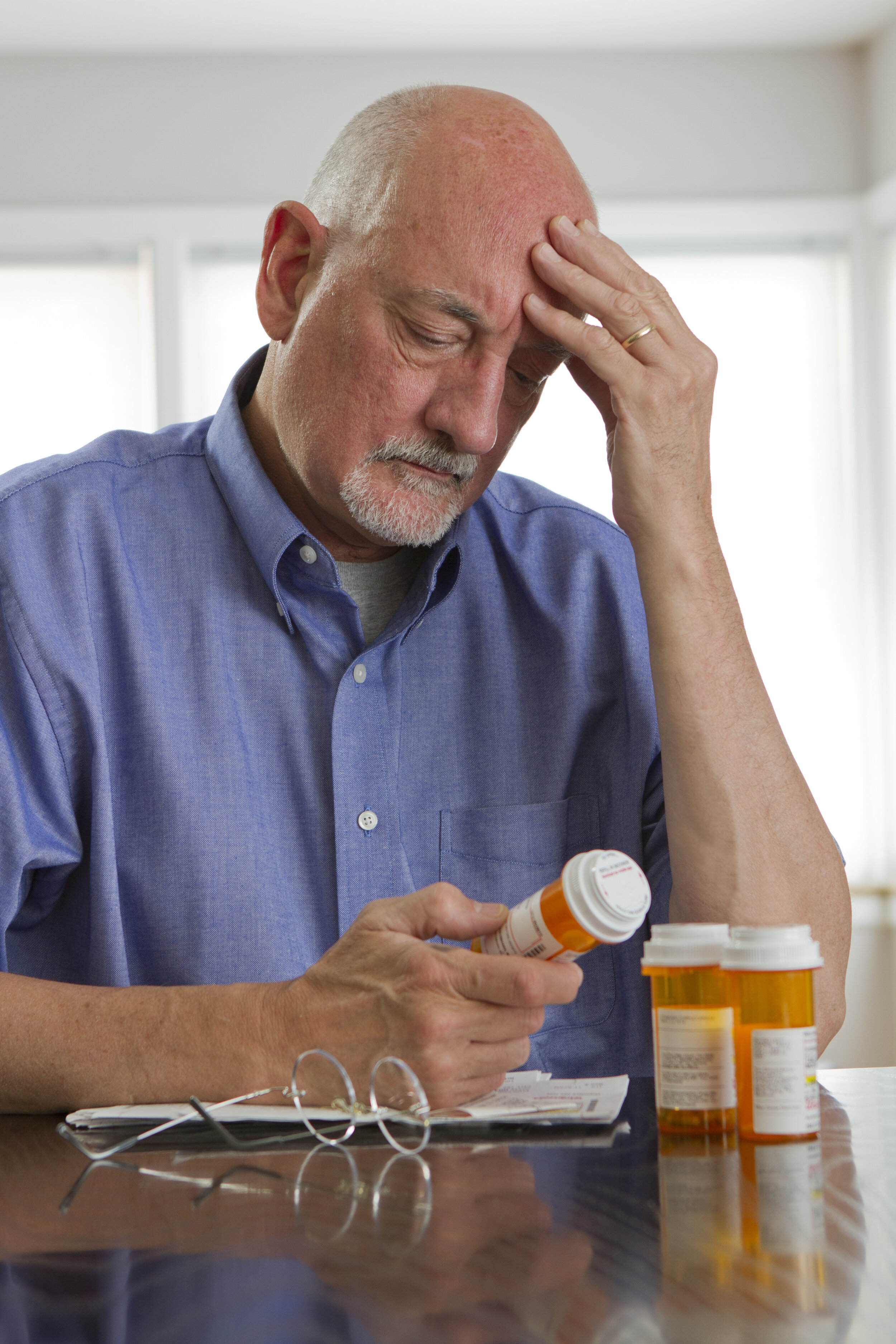KEEP TRACK OF YOUR MEDICINES
BY: LINDA R. BERNSTEIN, PHARM.D.
What is one of the most important things to have with you when visiting your pharmacist or other healthcare provider? The answer is an updated medication list of the prescription medicines, nonprescription products and supplements you take.
You may ask, don’t my pharmacist and healthcare providers know what I’m taking? They often don’t have the complete list, or it may be out of date. This is especially true if you frequent more than one pharmacy or healthcare provider, and do not see them on a regular basis. Plus, pharmacies usually don’t keep a computerized record of your nonprescription medicines and supplements. They typically only record medicines prescribed or recommended by your healthcare provider. That means, when they screen for drug interactions or duplication, not all your medicines are considered unless you inform them. You should present the full medication list to them at each visit for review.
In an emergency, where you might not be able to communicate, are with strangers who do not know you, and your medical record is not available, it is a huge time and potential life saver to have an updated medication list available to provide to the emergency personnel. In fact, it’s a good idea to always have several copies of your list available, including one in your wallet, car, prominently posted in your home near the front door of your house, on your refrigerator or elsewhere that’s easy to spot. Some people create a file in their cell phone or computer for easy access. But again, if you are not able to communicate and provide the password to get into your computer or phone, that may not help you. You can also send a copy of the list to your emergency contact people so they have it.
Include the following important personal medical information in your list:
• Full name
• Birthdate
• Date list last updated
• Current medications including prescription medicines, nonprescription products and supplements
• Allergies (list serious allergies first as well as allergies to materials the emergency responders may use such as latex)
• Chronic medical conditions (such as diabetes, heart disease, high blood pressure, epilepsy)
• Emergency contact names and phone numbers
• Your primary care physician name and phone number
• Your pharmacy name and phone number
You can download the Medication List we provide at www.DrLinda.TV for free.
There are other services which can provide information about you in an emergency. MedicAlert and several other brands have jewelry you can wear that gives responders quick information on your allergies, medical conditions, and even code (resuscitation) status. Potentially life-threatening allergies such as those which can cause anaphylaxis (for example, bees or peanuts) should be listed on the jewelry along with any heart medications you take. Information on the jewelry should include any medical condition you have which could kill you or make you unconscious such as diabetes or epilepsy. As stated on the Medic Alert website, “More than just a MedicAlert ID, your bracelet or necklace are globally recognized and provide a full suite of emergency response services with membership.”
Some services are also connected to databases that store more extensive information. You may include a "do not resuscitate" or DNR or advance directive order if you have one. Without a DNR document readily available, the EMTs or paramedics may begin cardiopulmonary resuscitation immediately if needed. They won't take the time (and don't have the time) to look anywhere else.
Another program called Vial of Life provides people with a form to fill out with medical information. You place it and other important documents such as a detailed medication list, EKG, do not resuscitate order, recent photo of yourself and a living will in a baggie identified with the Vial of Life decal and stick it to your refrigerator door. Another decal is then placed on the front door of your house to alert responders to the presence of the "vial" on the refrigerator door. In areas where the program is utilized by ambulance agencies or fire departments, the vial can be a good way to get information to rescuers if a person is unable to speak.
Remember, you can download the free Medication List we provide at www.DrLinda.TV for free. Watch our Medication List video on our YouTube Channel, Dr. Linda TV – Best of Health!
Keep track of your medicines, it could save your life.
REFERENCES:
https://www.verywellhealth.com/where-should-i-leave-medical-information-1298503
https://www.vialoflife.com/how_to_use_the_vial_of_life/
https://www.medicalert.org




